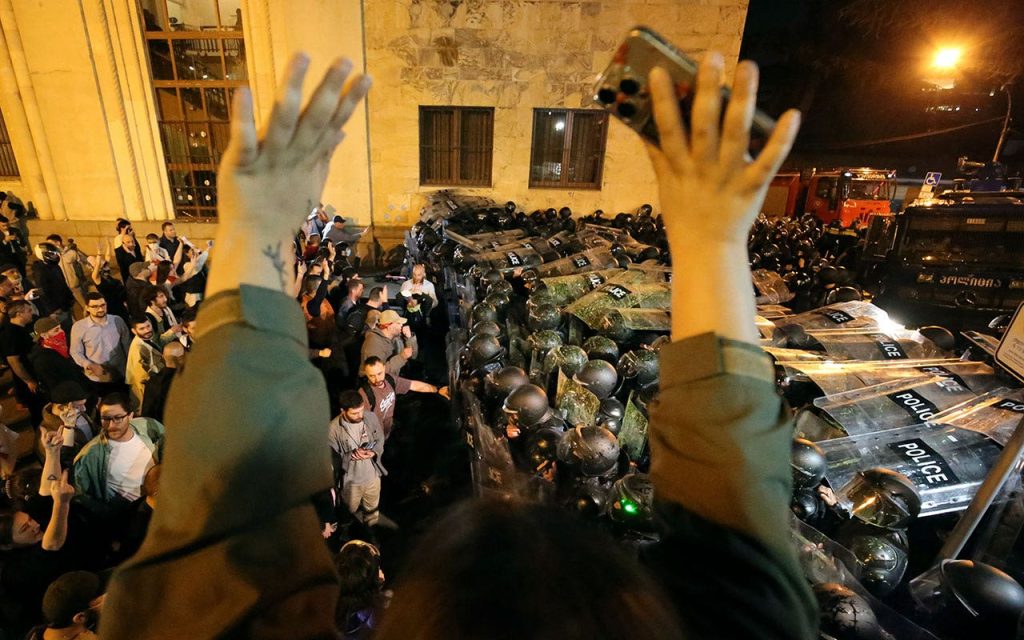Georgia’s parliament has passed a law in the first reading requiring media and non-profits to register as being under foreign influence if they receive over 20 percent of their funding from abroad. Critics argue that this legislation could jeopardize Georgia’s aspirations of joining the European Union, likening it to Russian laws aimed at suppressing dissent. Although President Salome Zourabichvili has vowed to veto the law if it passes in the third reading, the ruling party could override the veto with 76 votes. The bill closely resembles a previous proposal that sparked mass protests last year, with police using tear gas to disperse demonstrators outside the parliament.
Opponents of the law claim that it would align Georgia with Russia, Kazakhstan, and Belarus, where human rights are severely restricted. Giorgi Rukhadze, founder of the Georgian Strategic Analysis Center, warned that adopting this law would derail Georgia’s European path. The proposal states that organizations receiving 20% or more of their funding from abroad must register as “pursuing the interests of a foreign power,” replacing the previous wording of “agents of foreign influence.” The vote on this law is seen as an “existential choice,” with concerns that it could create a division between Georgia and the EU, pushing the country closer to Russia and away from Europe.
Georgia’s parliament’s approval of the law has led to chaos, with lawmakers physically fighting over the Putin-style ‘foreign agent’ bill. Despite President Zourabichvili’s promise to veto the legislation, the ruling party could gather enough votes to override the veto and pass the law. The use of tear gas on protesters has added to the tensions surrounding this controversial legislation, which is seen as a threat to freedom of the press and civil society. The bill’s similarity to legislation in Russia has raised concerns about the potential impact on Georgia’s democratic values and European aspirations.
The passage of this law in Georgia has drawn international attention, with many expressing alarm at the implications it could have for the country’s future. The requirement for media and non-profits to register as being under foreign influence if they receive over 20% of their funding from abroad is seen as a direct threat to independent voices and organizations in the country. The comparison to Russian laws targeting dissent has led to fears that Georgia could be moving towards a more authoritarian system, jeopardizing its democratic progress and aspirations to join the European Union.
The Georgian President’s promise to veto the law and the widespread opposition to it show that there is significant resistance to these measures within the country. The willingness of the ruling party to push forward with this legislation despite public outcry and protests highlights the deep divisions within Georgian society over issues of democracy and governance. The use of force by police to disperse demonstrators only serves to deepen these divides and raise concerns about the future direction of Georgia, particularly in relation to its European integration and democratic values. The passing of this law in subsequent readings will be closely watched both domestically and internationally for its impact on Georgia’s political landscape.


